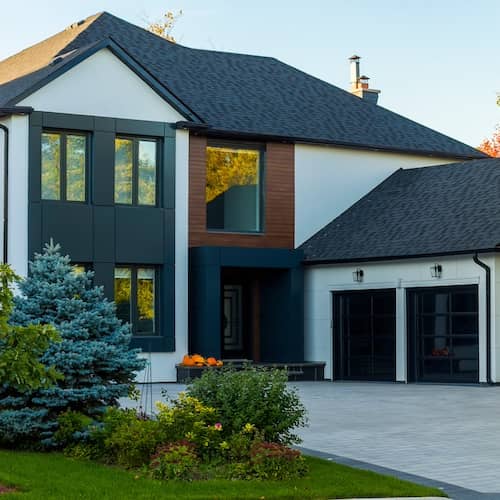When should you consider selling your home as a senior?
Contributed by Tom McLean
Jul 24, 2025
•4-minute read

It may be challenging to know when the time is right to sell your home. If you’re retired, you’ll want to consider how selling your home affects your finances and lifestyle. The best answer for you will depend on your reasons for wanting to sell, your financial setup, and your personal living situation.
Reasons seniors consider selling their home
If you’re a senior considering selling your home, you’re in good company. The majority of home sellers today are 60 – 78, according to the National Association of REALTORS®.
The most common reason seniors cite for selling their home is a desire to live closer to friends and family, whether for convenience, personal, or medical reasons. Older adults are more prone to loneliness and isolation, which can add stress and strain or increase their risk of mental and physical health problems. Seniors also may wish to sell their home because it’s too large for them to care for, mobility concerns, or to reduce their living expenses.
Considerations for seniors looking to sell their home
Seniors thinking about selling their home should consider the following factors.
Could you benefit from relocating?
There are many reasons why seniors might wish to consider relocating, perhaps to another state, including:
- To enjoy a more agreeable climate
- To live closer to friends and loved ones
- To reduce their housing costs
- To have better access to healthcare
- To reduce their tax bill and cost of living
- To be close to people in similar living situations
Do you have enough money to retire?
Even if you have enough saved up for retirement, selling your home can give you an influx of cash you can use to supplement your income or spend on other activities you enjoy.
If you’ve paid off your home or are close to paying it off, selling will convert your home equity into cash. You can use that money to pay for expenses, including your living expenses, health care, prescriptions, and travel.
Selling your home and renting a place to live can give you flexibility in retirement. You may pay less in rent than you did on your home. As a renter, you don’t have to pay property taxes, and your landlord will handle repairs and maintenance.
You also will be able to decide how much home you can afford in retirement, and better plan your finances in your senior years.
Should you downsize?
If you’re thinking about how to downsize your home, you’re not alone. Sellers ages 79 – 99 are the most likely to downsize. Downsizing can help seniors reduce their living expenses; save money on property taxes, maintenance, and upkeep; and find a home that’s easier to move around, for example, with fewer stairs to climb.
Whether to move into a smaller home should be based on a variety of factors, including your individual needs and preferences.
Do you want to worry about maintenance?
Owning a home requires maintenance and repairs. Seniors thinking about selling their home may wish to avoid having to make repairs because of the increased risk of common injuries or the cost. A rental or assisted living facility doesn’t require you to maintain or repair your home.
Reasons to stay in your current home in retirement
Of course, many seniors are happy living where they are and have no plans to sell. A few reasons for doing so might include:
- A strong sense of community. After living in a home for many years, seniors may have strong ties to the community.
- Inheritance plans. Seniors also may wish to pass on their home to family, a friend, or a charity as part of their inheritance plan.
- Emotional ties to the home. It’s common for seniors to want to stay in their homes for sentimental reasons, such as it’s where they raised their family.
- Money won’t go toward an appreciating asset. If you rent or live in an assisted living facility, your housing expenses won’t build equity the way they would if you were building equity.
- Unpredictability in rental costs. Costs of senior living facilities and rentals can fluctuate, which can be less desirable if you’re in retirement and need to plot your finances against a fixed income.
- Unresponsive landlords. While landlords are responsible for property maintenance and upkeep, they may not always be as responsive or helpful as you’d like.
- Ability to age in place. Many seniors would simply prefer to age in place in a comfortable and familiar environment.
Advice for seniors who want to rent after selling their home
Selling your home and renting when you retire can be a flexible financial setup for seniors, especially if you have equity you want to use to switch up your living situation or use for other purposes. You also may prefer to stay in your current home. The best answer depends on your lifestyle needs, financial situation, the shape of the current housing market, and your specific circumstances.
FAQ
Here are answers to common questions about when seniors might think about selling their homes.
Should you sell your home or rent it out as an investment property when you retire?
It depends on your financial needs and individual circumstances. Renting out your home can generate income, but it also comes with responsibilities that may limit your time and flexibility in retirement.
Does it cost more to own a home or to rent?
The short answer is that it depends on your mortgage, taxes, and local market. You’ll want to do your homework and research the topic before deciding to sell your home.
What taxes will you pay if you sell your house?
If you sell your home, you may owe capital gains tax on the profit derived from the sale, depending on how long you’ve lived there and how much you’ve earned.
If you decide to stay in your home after you retire, should you pay off your mortgage?
It depends. Paying off your mortgage may make good sense if you have enough savings to comfortably float the expense, but it might not be the best idea if it strains your retirement income.
The bottom line: Seniors should think through selling their home
Selling your home in retirement has many benefits, including fewer responsibilities, lower living expenses, and greater convenience. At the same time, many seniors are content to age in place. Selling your home and renting is a personal decision, based on individual financial and living circumstances.
For more information and articles that can help you as you do your research, be sure to check out our Learning Center. If you’re thinking about passing on your property to your heirs if you choose to not sell your home, you’ll also want to review our guide to life estates.

Scott Steinberg
Hailed as The Master of Innovation by Fortune magazine, and World’s Leading Business Strategist, award-winning professional speaker Scott Steinberg is among today’s best-known trends experts and futurists. He’s the bestselling author of 14 books including Make Change Work for You and FAST >> FORWARD.
Related resources

1-minute read
Amrock is now Rocket Close℠
Amrock, the nationwide title, mortgage settlement, and appraisal management company, is now Rocket Close.
Read more

8-minute read
What to do after closing on a home
The paperwork has been signed and you’ve got the keys in hand. Now what? Here’s what to expect after closing on a home.
Read more
6-minute read
What is a home warranty and how much does it cost?
A home warranty is a contract covering the repair or replacement of household appliances and home systems. Learn how it works and average plan prices.
Read more